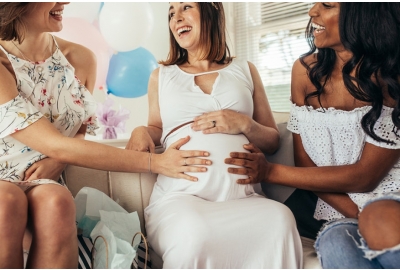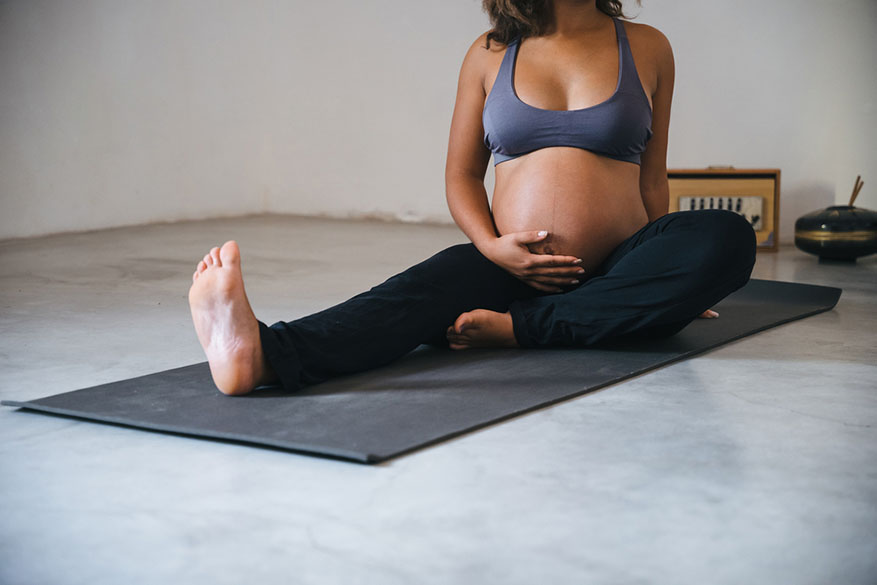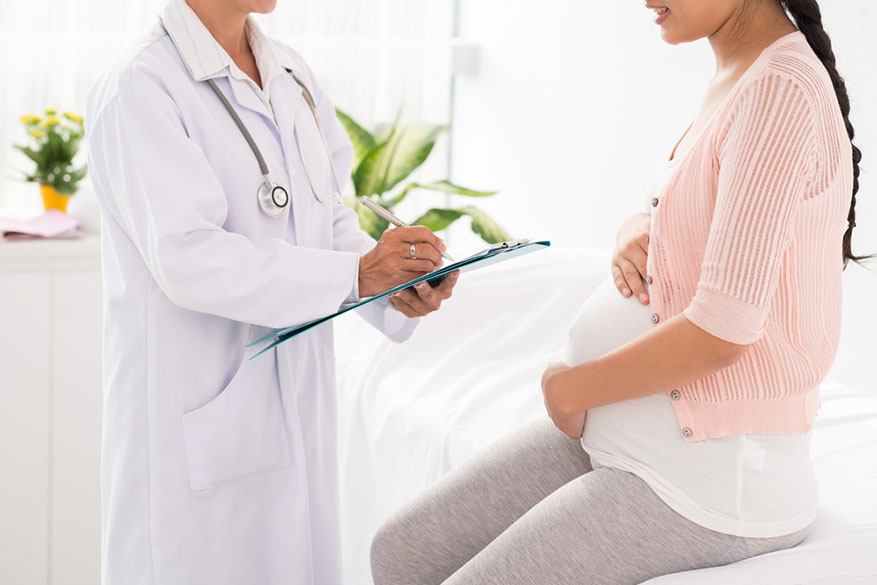
Leaking Urine During Pregnancy: All Your Questions Answered

Source: Jacob Lund/Shutterstock.com
If you find yourself leaking urine during pregnancy, don’t worry! While some women leak more than others, it’s actually entirely natural. After all, there’s a lot your body is going through. However, the frequent need to dash off to the ladies room (especially in the last trimester) can turn into urinary incontinence, which can come at inopportune times. From sneezing to coughing and even laughing at your hilarious friend’s jokes, pregnant mothers can leak urine at just about any time.
How to Manage Peeing When Coughing and Sneezing
Luckily, leaking urine during pregnancy is only temporary. And fortunately, there are ways to minimize the leaks when your bladder just won’t cooperate. Here’s all you need to know about this annoying yet common side effect of pregnancy and some steps you can take to control it.
What Causes Leaking During Pregnancy in the First Place?
There are many reasons a woman might leak urine during pregnancy. First, they may have a history of urinary tract infections or have experienced some weight gain that adds pressure on the bladder, which is only exacerbated when the baby begins to grow. A previous vaginal birth will certainly increase your chances as well. However, all this said, a pregnant woman’s body goes through tons of hormonal changes — specifically, the relaxin and progesterone levels, which assist bladder control.
Leaking Urine During Pregnancy? Try These 3 Solutions

Source: loreanto/Shutterstock.com
So, if you find yourself leaking urine during pregnancy, what can you do about it? Aside from wearing incontinence liners and other incontinence products for women as a backup, try these three solutions:
Maintain pregnancy weight — Unnecessary weight can create extra pressure on the bladder, plain and simple.
Drink plenty of water — Be sure to hydrate and fight urinary tract infections by drinking ten 8-ounce glasses of water each day, as suggested by the Institute of Medicine. Staying hydrated also helps minimize constipation, which adds more pressure to your bladder. Also, avoid drinks that irritate the bladder, such as sodas, alcohol, and coffee.
Kegel exercises -- Do three sets of Kegels each day and whenever you feel a cough or sneeze coming on. Practice a Kegel when laughing and lifting heavy objects, too.
Learn More About Kegel Ball Exercises
When Will the Leaking Stop?
The baby is here and that constant urge to run to the restroom has passed. Well, mostly. It takes some time for a woman’s body to return to normal after having a baby, some longer than others. If you’re wondering when the leaking will finally stop and are getting frustrated, just know that it takes time for the body (and bladder) to heal itself.
Postpartum incontinence can happen for many reasons. For example, it could be because you experienced a more prolonged vaginal birth or are finding it challenging to lose your baby weight. Whatever the case may be, there are ways to strengthen your bladder and pelvic floor through yoga and more.
Other Signs of Pregnancy Incontinence
Leaking urine during pregnancy isn’t the only sign of pregnancy incontinence. Whether you are carrying a child or already had your baby, it can create stress and even weaken the pelvic floor. What are other symptoms of pregnancy-related inconvenience? We’ve listed a few other signs below.
- Uncontrollably passing gas
- The sudden need to use the restroom
- Constipation or leaky bowels
- Prolapse: a dragging feeling inside the vagina
When You Should Consult Your Doctor

Source: Dragon Images/Shutterstock.com
Now you know — leaking urine during pregnancy is entirely normal for most women. It can even happen several times a day. But when should you be concerned?
Urine has a distinct smell and look. It has an ammonia-like scent with a light yellow hue. As a pregnant woman, if you ever see anything besides leaking or flowing, you should contact your doctor, doula, or practitioner right away. If the substance is clear and odorless, it could be amniotic fluids.
Also, if you have risk factors for pregnancy incontinence, talk to your doctor about using a pessary vaginal device.
For women susceptible to postpartum incontinence (i.e., vaginal birth, weight gain), consider taking postpartum pelvic floor physical therapy, performing yoga in the comfort of your own home.
Manage your pregnancy incontinence and postpartum incontinence with Sofia & Grace’s comfortable and discreet incontinence products. Shop liners and more to help manage bladder control.
Explore Incontinence Products for Women